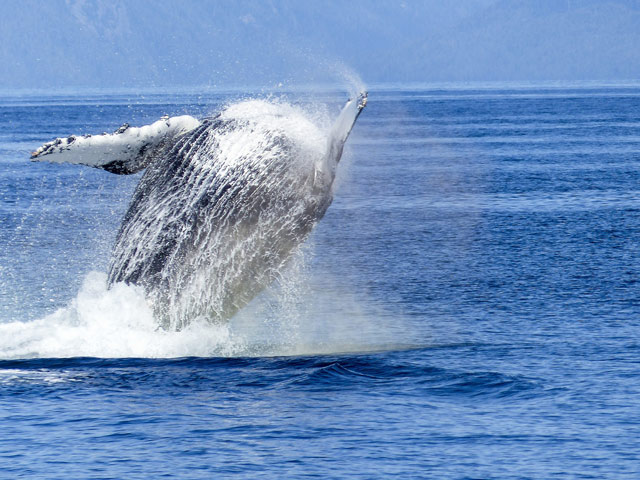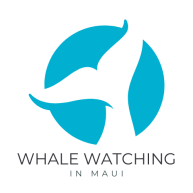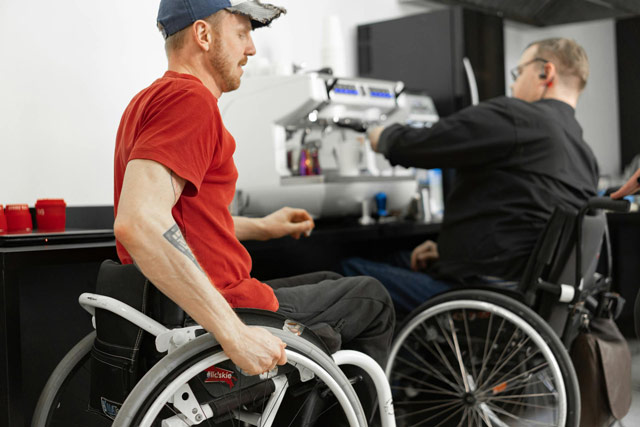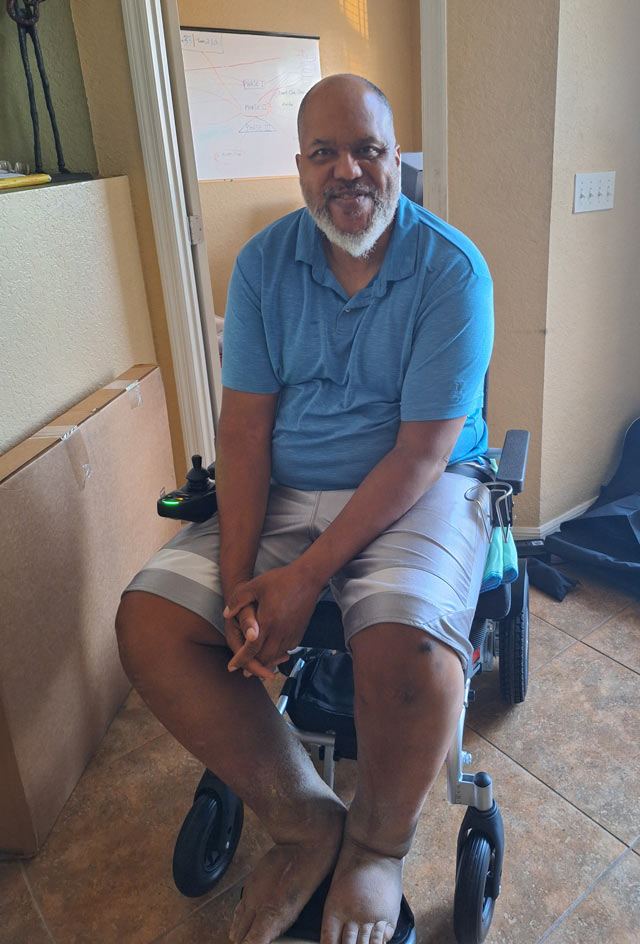If you’re like me and love the idea of witnessing whales in their natural habitat, but need a little extra help to make it happen, then you’re in for a treat! Finding ADA accessible whale watching tours in Maui can be a breeze if you know where to look.
I’m thrilled to share my journey and tips to help you make the most of this important and incredible opportunity to experience. One thing to remember is that it’s important to ALWAYS call ahead to any one of these companies to confirm their accessibility.
Remember, disabilities come in a wide range of varieties, from mobility challenges, hearing deficiencies, to even sensory issues. A company may not be able to accommodate guests with a wheelchair, but they may be able to accommodate a guest with sensitivities to sound.
Prefer to listen on the go? Hear The deep dive on the 2006 ADA Whale Watching Tour Guide.
Key Takeaways
- When one of the ADA accessible whale watching tours, inquire about specific accessibility features such as ramps, elevators, and accessible restrooms.
- Contact tour operators directly to discuss your specific accessibility requirements and ensure they can accommodate your needs.
- Contact tour operators directly to discuss your specific accessibility requirements and ensure they can accommodate your needs.
- Ensure the crew of any ADA accessible whale watching tours you’re interested in is trained to assist guests with disabilities and understand their specific needs.
- Relax, enjoy the scenery, and learn from the knowledgeable guides to make the most of your accessible whale watching adventure.
** I may receive a small commission for purchases made through links in this post, at no extra cost to you. **
My 5-Point Accessibility Checklist
Does the boat have a ramp or lift?Are the restrooms (heads) ADA compliant?Is the seating area shaded and accessible by wheelchair?Is the harbor/dock accessible?Does the crew have experience assisting guests with mobility needs?
Top ADA Accessible Whale Watching Tours in Maui

While it’s crucial to contact each operator directly to inquire about specific accessibility features, here are some reputable tour operators that offer varying degrees of options for ADA accessible whale watching tours.
Alii Nui Charter
This company offers upscale experiences with luxurious amenities. Their larger catamarans may offer more space and accessibility features for those whose challenges are less extreme. Ali Nui Charters depart from Ma’alaea Harbor, which is a historic harbor that was once a bustling center for commercial fishing and whaling. This provides easy access for many visitors. However, Even though Catamarans are a more stable platform than boats with traditional bows, I don’t recommend this particular tour for those with mobility challenges.
Book this whale watching tour with the widget below.
Pacific Whale Foundation
This non-profit organization is a pioneer in marine research and education. Founded in 1980, they have a strong commitment to sustainable tourism and prioritize the well-being of both guests and marine life. They offer ADA accessible whale watching tours on their boats and strive to accommodate guests with diverse needs. The Pacific Whale Foundation operates out of Ma’alaea Harbor.
Their tours are quite popular. Plus, they offer a full refund if you call to cancel 24 hours or more ahead of time. Use the widget below to check their availability or to book a whale watch tour.
Pride of Maui
This locally owned and operated company has been providing whale watching tours for many years. Pride of Maui known for their family-friendly atmosphere and spacious catamarans. Depending on the type and level of their passengers’ challenges, their boats may offer more space for maneuvering and accessibility features. They depart from Ma’alaea Harbor, which offers convenient access for many visitors.
Trilogy Excursions
Trilogy Excursions is a well-established company known for its high-quality service and commitment to excellence. They offer a variety of tours, including sunset cruises and snorkeling excursions. While specific accessibility features may vary, they prioritize guest comfort and strive to accommodate diverse needs. They operate out of Lahaina Harbor, a historic whaling village with a rich maritime history.
Sea Maui
This eco-conscious operator utilizes solar panels and other sustainable practices. They offer smaller, more intimate tours, which may be easier to navigate for some disabled guests. They depart from Lahaina Harbor, which offers convenient access from various locations on the island.
Book your Sea Maui tour using the widget below.
Pro Tip!
I can’t stress enough to book any ADA accessible whale watching tours early in the season for smaller crowds and to get more personalized attention from the crew.
What to Expect From ADA Accessible Whale Watching Tours
ADA accessible whale watching tours can vary significantly depending on the specific operator, the size of the vessel, and the level of accessibility provided.
Beyond a tour’s accessibility, it should be noted that whale sightings are not guaranteed. However, reputable tour operators strive to provide the best possible opportunity to observe these large and amazing creatures.
Vessel Features
- Size of the vessel: Larger vessels may offer more space for maneuvering and potentially more accessible features.
- Number of decks: Vessels offering ADA accessible whale watching tours that have multiple decks may offer more flexibility in seating arrangements and potentially easier access to different areas.
- Accessibility features: When considering different ADA accessible whale watching tours, look for features like ramps, elevators, and accessible restrooms.
- Seating options: Inquire about seating options that accommodate wheelchairs or offer adequate legroom.
Crew Training
- Trained staff: Ensure the crew is trained to assist guests with disabilities and understand their specific needs.
- Assistance on board: Inquire about the availability of assistance with boarding, disembarking, and navigating the vessel.
Whale Watching Experience
- Informative commentary: You can expect to hear informative commentary from knowledgeable guides about whale behavior and the marine environment on ADA accessible whale watching tours.
Fun Fact!
Did you know that humpback whales can sing? Finding a tour that features a hydrophone (underwater microphone) will give you a chance to listen to their underwater opera performances.
Preparing for Your Whale Watching Adventure
Proper preparation can ensure a smooth and enjoyable whale watching experience, especially for individuals with disabilities. By taking a few simple steps, you can enhance your comfort on ADA accessible whale watching tours and maximize your enjoyment.
- For individuals with mobility challenges:
- Consider using a wheelchair or mobility aid: If you use a wheelchair or other mobility aids, inquire with the tour operator about their specific accessibility features and whether your equipment can be accommodated on board.
- Arrange for assistance: If needed, arrange for assistance with boarding and disembarking the vessel.
- Wear comfortable shoes: Choose comfortable, non-slip shoes that provide good support.
- Bring any necessary assistive devices: Don’t forget to bring any necessary assistive devices, such as canes, crutches, or wheelchairs.
- For individuals with sensory sensitivities:
- Consider noise levels: Inquire about the noise levels on board their ADA accessible whale watching tours and whether there are areas with quieter seating options.
- Bring noise-canceling headphones or earplugs: If needed, bring noise-canceling headphones or earplugs to help minimize distractions. LEVN makes a fantastic and affordable noise cancelling headphones that I provide an Amazon link for below.
- Inform the crew about any sensory sensitivities: Let the crew know about any sensory sensitivities you may have so they can assist you in finding the most comfortable location on board.
- For individuals with visual impairments:
- Bring binoculars or a spotting scope: If possible, bring your own binoculars or spotting scope for a closer look at the whales. I recommend 8×40 waterproof binoculars because that provides a nice balance between magnification and steadiness. Below, in the “Recommended for Your Whale Watch” section, you can find a great pair of binoculars at Amazon that are perfect for whale watching.
- Inquire about verbal descriptions: Ask the tour guides to provide detailed verbal descriptions of the whale sightings.
- Consider bringing a companion: A companion can assist with navigation and provide additional support.
- General Tips:
- Dress in layers: Evenings can get chilly on the water, so dress in layers to adjust to changing temperatures.
- Apply sunscreen: Protect your skin from the sun with sunscreen and wear a hat and sunglasses. Regarding sunscreen, below is a link to reef-safe sunscreen that is great protection to you as a broad spectrum, vitamin E – infused shield, and is great protection to the marine life and ecosystem you are visiting Maui to enjoy.
- Bring a camera: Capture the memories with your camera or phone. Don’t forget to bring a waterproof case or use a camera with a good zoom lens.
- Stay hydrated: Bring water and snacks to keep yourself comfortable throughout the trip.
Recommended for Your Whale Watch

Accessibility Tip!
Always inform the tour operator of any specific needs when booking. This ensures they’re ready to accommodate you and make your trip as smooth as possible.
Enjoying the Experience
Once you’re out on the water, immerse yourself in the experience. Find a comfortable spot on the deck and relax. Allow yourself to be captivated by the vastness of the ocean and the beauty of the surrounding scenery.
The crew will be on hand to point out whale sightings, providing fascinating insights into their behavior and the marine ecosystem. Be sure to watch for other marine life, such as dolphins, sea turtles, and various species of birds. Listen to the sounds of the ocean and feel the gentle breeze on your face.
Remember to breathe deeply and savor the moment. This is your opportunity to connect with nature and experience the awe-inspiring power of the ocean, which is something many of us don’t get to do very often, disability or not!
Fun Fact!
Humpback whales are known for their acrobatics. Imagine an animal nearly the size of a semi-trailer truck leaping out of the water!
Making the Most of Your Tour
- Choose the Right Time: Mornings often have calmer seas, making it easier to enjoy the experience.
- Stay Hydrated: Bring water and snacks to keep yourself comfortable throughout the trip.
Pro Tip!
Opt for a tour that includes educational commentary. It’s not just about seeing whales; it’s about learning their fascinating stories too.
Handicap-Accessible Whale Watching Tour FAQ
Question: What is the difference between ADA accessible and wheelchair accessible?
Answer:
“ADA accessible” means that a facility or service meets the standards set by the Americans with Disabilities Act (ADA)—this includes accessible entrances, restrooms, parking, seating, and pathways for people with a wide range of disabilities. “Wheelchair accessible,” on the other hand, specifically means the area or equipment can accommodate someone using a wheelchair, such as with ramps, wider doors, or lifts. In short, all wheelchair-accessible facilities should be ADA compliant, but not all ADA-accessible locations are fully designed for wheelchairs.
Question: What month is best to go whale watching?
Answer:
The best month for whale watching in Maui is February, as it’s right in the middle of the peak season (December through April). During this time, thousands of humpback whales migrate to the warm Hawaiian waters to breed and give birth. Sightings are extremely frequent, and calm seas plus warm weather make February ideal for both viewing conditions and comfort.
Question: What is the best travel for seniors with limited mobility?
Answer:
For seniors with limited mobility, the best whale watching experience is typically a large, stable catamaran or powerboat with ADA or wheelchair accessibility, such as those departing from Lahaina Harbor or Maʻalaea Harbor. These boats usually have shaded seating, accessible restrooms, and level boarding ramps. Some companies even offer whale watching tours specifically designed for seniors, with gentle boarding and plenty of comfortable seating.
Question: Do whale watching boats have toilets?
Answer:
Yes, most whale watching boats in Maui do have toilets (often called “marine restrooms” or “heads”) on board. Larger vessels, such as catamarans and double-decker boats, typically have more spacious and easily accessible restrooms. Smaller raft-style boats (like zodiacs) usually do not have toilets, so those are better suited for shorter trips or more adventurous travelers.
Question: What is the most common ADA violation?
Answer:
The most common ADA violation is inaccessible entrances or pathways, often due to missing ramps, steep slopes, or doors that are too heavy or narrow for wheelchair users. In the travel and tourism industry, other frequent violations include non-compliant restrooms, lack of designated accessible parking, and failure to provide accessible seating or boarding options on tours or transportation services.
Conclusion
Exploring the ocean and spotting whales is an unforgettable adventure, and with several ADA accessible whale watching tours available, there’s no reason anyone should miss out. These tours ensure that everyone, regardless of ability, can experience the beauty of whale watching in Maui.


